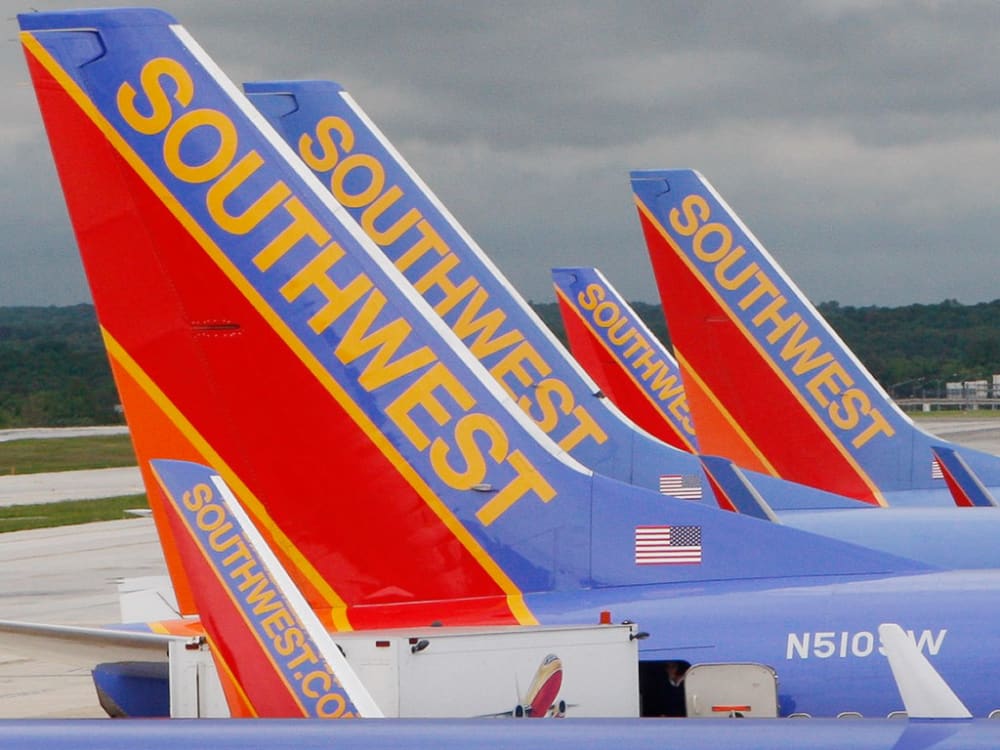 Photo by Charles Dharapak/AP
Photo by Charles Dharapak/AP
I love Southwest. I love the flight attendants who sing and rap the standard safety announcements, or turn them into stand-up comedy routines. I love the lack of baggage fees. I even like the cattle call boarding, which is by any estimate faster and more efficient, which as a cheap (and late) ticket purchaser, gives me a good shot at a non-middle seat as long as I show up early.
If they could just add the seat-back TVs like JetBlue has and start flying international, I'd never fly anyone else.
So you would think I'd be elated at the announcement that Southwest would be purchasing and merging with Atlanta-based AirTran. The acquisition (at a reported value of $1.4 billion) will bring Southwest more access to big Northeast cities like New York and Boston; a hub in currently un-Southwest-served Atlanta, the nation's busiest airport; and some destinations in the Caribbean and several smaller cities.
There's only one problem: AirTran is one miserable hellhole of an airline. It's early years as crash-prone ValuJet aside, it seems like the drudgery of air travel should be somewhat even among carriers. But AirTran seems to go out of its way to make passengers miserable.
All flights, or at least all the ones to Texas, seem to be routed through the Atlanta hub, which is fine. (You don't become a fan of Southwest without accepting the inevitablility of stopovers.) But even if you design your flight to keep you on the same aircraft in and out of Atlanta, instead of having a stretch and a peaceful wait while passengers deboard and embark, AirTran makes everyone get off the plane and stand awkwardly in the terminal while the gate agents studiously ignore you.
After dealing with this on several trips, I vowed I would never again fly AirTran, no matter how much cheaper its route was than its competitors.
I'm sure I'm not alone: In 2009 AirTran came in a terrible 17 out of 19 carriers in ontime rankings, ahead of only a couple regional carriers, with fully one-fourth of all flights coming in late. Southwest was ranked second, following only Hawaiian Airlines. In the same Air Travel Consumer Report by the Transportation Department, Southwest also had the lowest rate of complaints, with only .21 complaints per 100,000 "embarkments."
One area where AirTran did outperform Southwest was in not losing luggage. The Atlanta airline ranked first, while Southwest came in last.
One Southwest employee said that in addition to the new destinations the merger would help the expanding airline add to its jet fleet. With 138 Boeing 737 and 717 jets, the value of AirTran's fleet would seem to be several times greater than the purchase price.
I'll be curious to see if Southwest can impart the same kind of spirit and attitude in the AirTran employees as it does in its own hires. Unlike other airlines that seem to be always warding off strikes, Southwest maintains a good relationship with its employees and their unions. This is, after all, an airline so confident of being good guys that they made a show about it.
Southwest employees like to describe the corporate culture with an anecdote: Three pilots came in to interview. In the waiting room, there were several yo-yos on the table, and the two that played with them got hired.
Can Southwest extend the corporate culture that makes them successful into AirTran? I certainly hope so.

 The building at 4911 will be torn down for the new greenspace. Holland Lodge No. 1, A.F. & A.M./Facebook
The building at 4911 will be torn down for the new greenspace. Holland Lodge No. 1, A.F. & A.M./Facebook